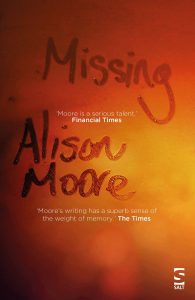 When, at the end of the story, the woman is on the verge of accepting that there will not be a relationship between them, when she is poised to leave the hospital room for the final time, abandoning the man to his coma, it is not at all clear whether she really will walk away or whether, pausing and looking back, she will give in and return. Jessie had put the question to the author, who might eventually reply and who would no doubt say that not knowing was the whole point… In each of the stories…there was a failure to connect, and the endings seemed to hang in the air; they were barely endings at all.
When, at the end of the story, the woman is on the verge of accepting that there will not be a relationship between them, when she is poised to leave the hospital room for the final time, abandoning the man to his coma, it is not at all clear whether she really will walk away or whether, pausing and looking back, she will give in and return. Jessie had put the question to the author, who might eventually reply and who would no doubt say that not knowing was the whole point… In each of the stories…there was a failure to connect, and the endings seemed to hang in the air; they were barely endings at all.
I was skyping with a friend the other day and in the course of conversation we discovered we both happened to be reading the same book, Alison Moore’s newly released fourth novel, Missing. We agreed that Alison Moore was one of those authors whose books we acquire sight unseen the moment they come out. I devoured this latest in just two days. I could say that Missing is Moore’s best novel so far, but I am not entirely sure that would be accurate. One of the hallmarks of Moore’s writing is its consistency. Everything I have ever read by her is of a similarly high quality. I am convinced that Alison Moore is incapable of writing a bad sentence.
Missing tells the story of Jessie, a freelance translator in her late forties, living in the Scottish border town of Hawick. Her husband Will walked out on her some months ago and we don’t know why. Her cottage might be haunted, and there are ghosts from the past that keep rising up, ghosts that have largely defined the life Jessie is leading now.
To describe this novel as heartbreaking would seem to hint at drama, histrionics, yet much of the beauty and resilience of Moore’s novels lies in their avoidance of overt confrontation. Her characters’ worlds are focused inwards, their suffering, while not exactly secret, remains largely unspoken of, their tragedies translated into the thousand unceasing banalities of everyday life: a packet of frozen peas that will never now be retrieved from a neighbour’s freezer, a lost watch, an unmarked calendar. We cannot know the ending, and that, indeed, is the whole point.
There are books which, when you finish reading them, force you to stop everything for a moment to acknowledge their excellence, to mark a personal encounter with something special. Missing is one of those books, and it gives me great joy to say that it hit me hard. Alison Moore was famously shortlisted for the Booker Prize in 2012 for her debut novel The Lighthouse. Missing deserves equal attention. More than that though, Moore deserves considerably more attention as a writer than she is currently getting.